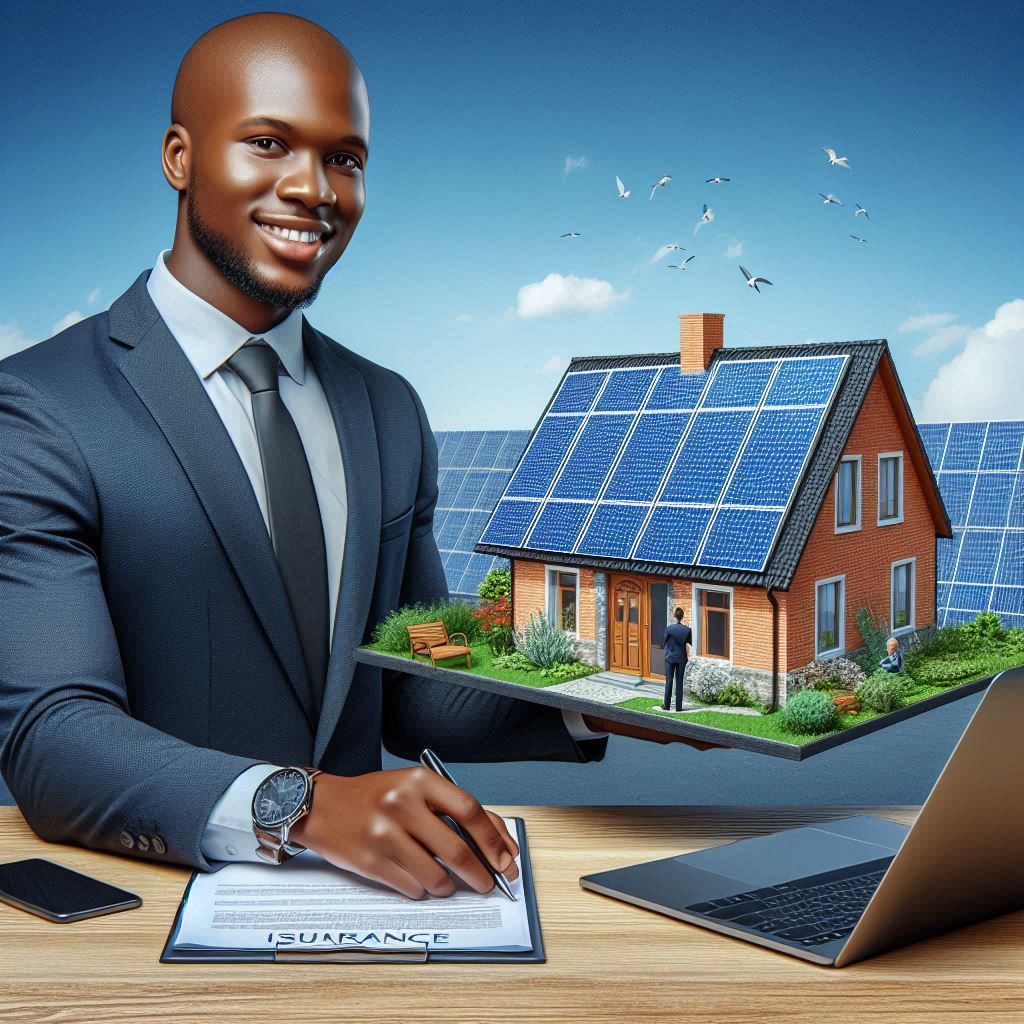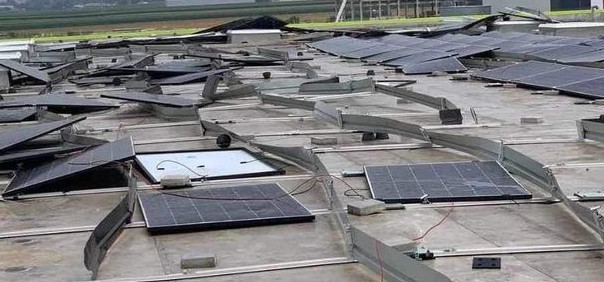I care about the longevity and efficiency of my solar power system, and I’m certain you do too. You invested in this technology for a reason: it’s clean, renewable, and has the potential to save you money in the long run. But what happens when Mother Nature has other plans?
Solar panels are generally robust; they’re designed to weather the elements. However, ‘extreme weather’ isn’t just a bad day of rain or a chilly snap. We’re talking hail the size of golf balls, typhoons that can turn umbrellas inside out, and gales capable of sending patio furniture airborne.
Real world impact is startling. For instance, a severe hailstorm can puncture the surface of solar panels, while hurricanes have been known to completely rip installations off their mountings. Sometimes, it’s not just the immediate force, but the aftermath – sediment and debris can scratch or cover panels, significantly reducing their effectiveness.
How these events relate to your solar panels’ performance isn’t trivial. High winds can cause panels to flex, connections to loosen, or wiring to fray. Heatwaves and cold snaps alike can make materials expand or contract, potentially leading to micro-cracks which undermine solar efficiency.
It’s not all doom and gloom, though. Innovations in solar technology have led to tougher panels, ones that can take a hit and keep on shining. Installation practices have evolved too, incorporating sturdier mounts and racks to mitigate these risks.
Knowing your enemy is half the battle won. If you’re aware of what could go wrong, you’re already on the path to protecting your investment. With pragmatic approaches to design and installation plus insurance considerations, you’ll stand a better chance against the whims of the weather.
Safeguarding Your Solar Investment: The Role of Insurance

I want to help you fully understand how to protect your reliance on solar energy, especially when nature shows its untamed side. Insuring your solar panels isn’t just about fulfilling a legal requirement; it’s about ensuring peace of mind.
Insurance for solar power systems falls into property insurance or specialized renewable energy policy categories. These policies typically cover physical damages, such as those from hail or high winds, along with the associated repair or replacement costs.
One aspect that’s particularly valuable is coverage for lost income. If your solar plant stops generating electricity due to damage, your policy could compensate for the energy you’re unable to produce. This aspect of insurance can be crucial for businesses that heavily rely on solar power for their operations.
Let me be clear: not all insurance policies are created equal. It’s crucial to pore over the fine print and fully grasp what’s included and what’s not. Ensure the policy matches your requirements and the unique risks your solar setup faces.
I recommend seeking guidance from an insurance expert with experience in solar energy systems. They can offer insights into the intricacies of insurance coverage and help tailor a policy that’s right for you.
In conclusion, extreme weather doesn’t have to spell disaster for your solar panels. With the right insurance policy in place, you can protect your financial interests and your green energy supply. It’s a smart move that shields you from the unpredictability of the weather and secures your energy future.
Insurance in USA
Several insurance companies in the US offer solar panel insurance for homeowners. Some of the most famous include:
1. State Farm: One of the largest insurers in the US, State Farm includes solar panels as part of its standard homeowner’s insurance policies.
2. Allstate: In its standard property insurance policies, Allstate also includes coverage for solar panels.
3. Farmers Insurance: Farmers Insurance covers solar panels through their home insurance policies.
4. USAA: which specializes in insuring military members and their families, offers coverage for solar panels in its policies.
5. Liberty Mutual: As part of its standard property insurance, Liberty Mutual provides solar panels.
6. Nationwide: Nationwide provides coverage for solar panels through its home insurance policies.
Before choosing a policy, it is advisable to get detailed information about the specific conditions of coverage, as well as to inquire about any possible additional costs or clauses. Contacting the insurance company directly and speaking with their agent can help you get accurate information tailored to your situation.
Protect your properties
Proper Solar Panel AngleProtecting solar panels from strong gusts of wind is key to maintaining their functionality and longevity. Here are some recommended protection measures:
1. Quality Assembly:
Sturdy Brackets and Frames: Opt for high-quality, robust brackets and frames that can endure powerful wind gusts.Professional Installation: To ensure that the panels are properly attached, hire experienced installation professionals.
2. Aerodynamic Design
Not aircraft industry but Low Profile: Panels with a lower profile (small angle) have less wind resistance, reducing the risk of damage.Aerodynamic Shapes: Certain panels feature designs that minimize wind turbulence.
You may read more about ideal angle…
3. Additional protective measures:
Protective barriers: Placing protective barriers or windbreaks can help reduce direct wind impact.
Correct positioning: Place the panels at an angle that reduces exposure to direct wind gusts.
4. Regular maintenance and inspection:
Inspection after storms: After high winds or storms, check that all panels and supports are in excellent condition.Maintain brackets and fasteners regularly to prevent corrosion and damage.
5. Local regulations and standards:
Building Code Compliance: Ensure that the solar system installation meets all local building codes and standards, which often include requirements for wind resistance.
6. Insurance, and finally, Insure Solar Panels: Consider insuring your solar panels against damage from high winds and other extreme weather conditions as an additional layer of protection. You don’t need to protect whole solar system (inverter is usually in cabinet or it he house).
With proper installation, regular maintenance, and additional protective measures, you can significantly reduce the risk of solar panel damage due to strong wind gusts.


